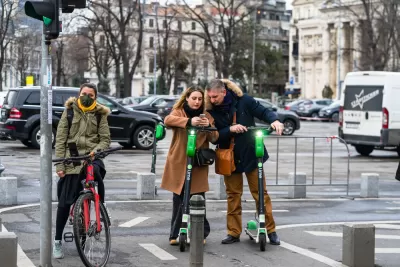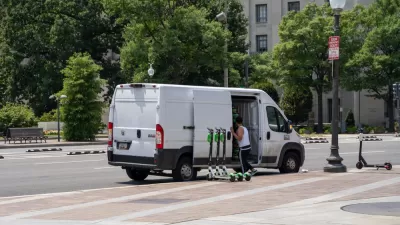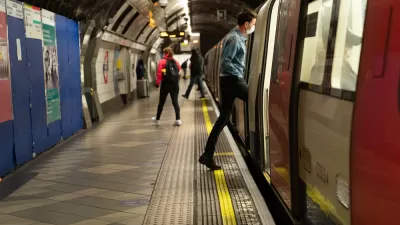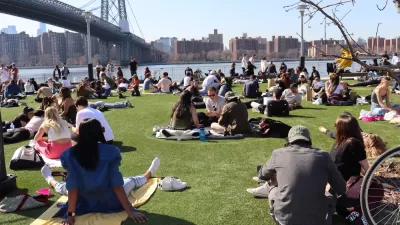It's the end of the scooter as we know it.

Scooter companies cut back on service in the first month of social distancing and stay-at-home-orders, and the industry faces ongoing uncertainty now that as the United States enters a third month of social distancing and stay-at-home orders.
"Lime announced [in March] it will suspend its bike and scooter service in San Francisco, Washington state and some European markets, then doubled down on the suspensions by extending them to all North American markets and 22 countries [in March]," according to an article from March by Jason Plautz.
"Bird told Smart Cities Dive that it had removed its vehicles from San Francisco and select European cities, citing a 'deep understanding of and empathy towards the cities, communities and people we serve.'"
The companies haven't always been in the driver seat in removing scooters from streets—Miami-Dade County, for instance, "barred citizens from operating any common-use micromobility vehicle," according to Plautz. Still, other cities, like San Francisco, made allowances for the vehicles as essential services (San Francisco cut public transit service all over the city in April).
At the outset of the coronavirus public health crisis, shared micromobility devices looked like they might corner a larger share of the urban transportation market as people turned to bike share as they stopped using public transit and other shared modes, and evidence from Wuhan suggested the potential new demand for shared micrombility options after that city ceased its lockdown. As noted by Plautz, the current difficulties for the scooter share market comes at a key time in the industry's businesses cycle—riders tend to return to these systems during the warming months of spring and through the summer.
The reporting in May isn't much more optimistic. While Uber, recently announcing more a wave of layoffs in its ride-hailing business, is selling its JUMP brand to Lime (Lime acquired Jump thanks to investments from Uber, so the sale is still an investment by Uber). Industry observers, like Jared Newman, are already predicting the demise of the electric scooter rental business as we knew it, however briefly.
FULL STORY: Will scooters survive the COVID-19 crisis?

Study: Maui’s Plan to Convert Vacation Rentals to Long-Term Housing Could Cause Nearly $1 Billion Economic Loss
The plan would reduce visitor accommodation by 25,% resulting in 1,900 jobs lost.

North Texas Transit Leaders Tout Benefits of TOD for Growing Region
At a summit focused on transit-oriented development, policymakers discussed how North Texas’ expanded light rail system can serve as a tool for economic growth.

Alabama: Trump Terminates Settlements for Black Communities Harmed By Raw Sewage
Trump deemed the landmark civil rights agreement “illegal DEI and environmental justice policy.”

How Community Science Connects People, Parks, and Biodiversity
Community science engages people of all backgrounds in documenting local biodiversity, strengthening connections to nature, and contributing to global efforts like the City Nature Challenge to build a more inclusive and resilient future.

Alabama: Trump Terminates Settlements for Black Communities Harmed By Raw Sewage
Trump deemed the landmark civil rights agreement “illegal DEI and environmental justice policy.”

Dear Tesla Driver: “It’s not You, It’s Him.”
Amidst a booming bumper sticker industry, one writer offers solace to those asking, “Does this car make me look fascist?”
Urban Design for Planners 1: Software Tools
This six-course series explores essential urban design concepts using open source software and equips planners with the tools they need to participate fully in the urban design process.
Planning for Universal Design
Learn the tools for implementing Universal Design in planning regulations.
City of Santa Clarita
Ascent Environmental
Institute for Housing and Urban Development Studies (IHS)
City of Grandview
Harvard GSD Executive Education
Toledo-Lucas County Plan Commissions
Salt Lake City
NYU Wagner Graduate School of Public Service





























